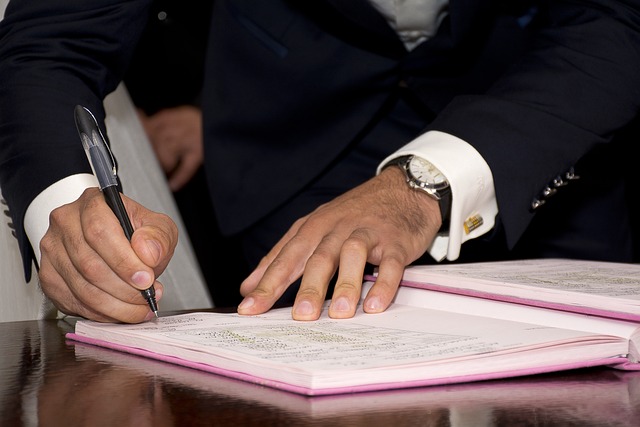In today's globalized marketplace, UK Contracts and Agreements translation services are essential for businesses aiming to expand internationally. These specialized services ensure accurate legal translations, navigating complex terminologies and cultural nuances crucial for compliance and risk mitigation. With a robust UK legal framework influencing global operations, professional translators bridge the gap, providing vital support for cross-border transactions. This involves linguistic proficiency, legal expertise, and an understanding of diverse jurisdictions. By prioritizing confidentiality, accuracy, and cultural sensitivity, reputable firms build trust, leveraging technology to enhance efficiency while maintaining professionalism.
In today’s globalised business landscape, delivering accurate translations of legal documents is crucial for companies expanding into new markets. This article explores the intricacies of UK contracts and agreements translation services, delving into the challenges and importance of professional legal translation. From navigating cultural nuances to ensuring accuracy through quality assurance, we examine best practices and the role of technology in this delicate task. Understanding these aspects is essential for businesses aiming to build trust and success in international legal matters.
- Understanding Legal Translation: Challenges and Importance in Business
- The UK Legal Landscape: Contracts, Agreements, and Their Global Reach
- Professional Translation Services: Qualifications and Expertise Required
- Navigating Cultural Nuances in Legal Documents: A Delicate Task
- Ensuring Accuracy: Quality Assurance for UK Contract Translations
- Technology's Role: Machine Translation vs Human Interpreters
- Building Trust: Best Practices for Businesses Using Legal Translation Services
Understanding Legal Translation: Challenges and Importance in Business

Legal translation is a specialized field that requires not just linguistic expertise but also a deep understanding of legal terminology, systems, and cultural nuances. When it comes to business, accurate translations of contracts, agreements, and other legal documents are paramount. Inaccurate or poorly translated documents can lead to severe consequences, including contractual disputes, legal non-compliance, and reputational damage.
In the UK, where a robust legal framework governs various industries, businesses often rely on professional translation services for their international operations. UK Contracts and Agreements translation services play a critical role in ensuring that legal texts are not just linguistically correct but also culturally appropriate and legally sound. This is particularly important as businesses expand into new markets, needing to navigate complex legal landscapes while maintaining the integrity of their contracts.
The UK Legal Landscape: Contracts, Agreements, and Their Global Reach

The UK legal landscape is characterised by a robust framework that governs various aspects of business operations, with contracts and agreements playing a pivotal role. These legal documents are essential tools for establishing clear terms and conditions between businesses, clients, and partners, both domestically and internationally. The reach of UK contracts extends far beyond borders, making professional translation services increasingly vital for globalised businesses.
Accurate and culturally sensitive translations of contracts and agreements are crucial to ensure their effectiveness in foreign jurisdictions. Businesses operating across borders rely on UK Contracts and Agreements translation services to navigate the complexities of cross-cultural legal practices. These services facilitate smooth transactions by bridging the language gap, ensuring that every clause is meticulously conveyed, thereby mitigating potential legal risks and disputes.
Professional Translation Services: Qualifications and Expertise Required

Professional translation services for legal documents require a high level of expertise and qualifications. Translators working on UK contracts and agreements must possess not only fluency in both the source and target languages but also a deep understanding of the specific terminology and legal concepts involved. This ensures that translations are precise, accurate, and legally sound.
In the case of UK contracts and agreements, translators need to be well-versed in English law and commercial practices, as well as the laws and regulations of the target country. They should also have experience dealing with a variety of legal documents, including contracts, terms and conditions, licensing agreements, and regulatory compliance reports. Certification from reputable translation bodies, such as the Institute of Translation and Interpreting (ITI), is often required to guarantee quality and professionalism in UK contracts and agreements translation services.
Navigating Cultural Nuances in Legal Documents: A Delicate Task

Navigating cultural nuances in legal documents is a delicate task, especially when it comes to international business transactions. In the UK, contracts and agreements are governed by a specific set of laws and regulations that may differ significantly from those in other countries. Professional translation services play a crucial role in ensuring these legal documents are accurately conveyed across languages while preserving their intended meaning and compliance with local laws.
The challenge lies in capturing not just the literal translation of words but also understanding cultural implications, idiomatic expressions, and legal terminology unique to each jurisdiction. UK contracts and agreements translation services employ experienced linguists who are well-versed in both language and law, allowing them to bridge this gap effectively. They meticulously scrutinize every aspect, from phrase structures to legal concepts, to deliver precise and culturally sensitive translations that meet the highest standards of accuracy and professionalism.
Ensuring Accuracy: Quality Assurance for UK Contract Translations

Technology's Role: Machine Translation vs Human Interpreters

In today’s digital era, technology plays a pivotal role in delivering professional translations for legal documents, especially in the realm of UK Contracts and Agreements translation services. Machine translation (MT) tools have revolutionized the industry by enabling quick and cost-effective solutions. These algorithms can process vast amounts of text, ensuring consistent and accurate translations across various languages. This is particularly beneficial for businesses dealing with a high volume of standard contracts, as MT can efficiently streamline the localization process.
However, when precision and nuanced understanding are paramount, human interpreters remain indispensable. Legal documents often contain complex terminology, contextual nuances, and cultural references that require expert knowledge. Human translators can provide a deeper level of interpretation, ensuring that the translated text not only conveys the meaning but also adheres to the legal framework and cultural sensitivities specific to the target region. This is crucial for avoiding potential pitfalls and ensuring the validity and enforceability of contracts in international jurisdictions.
Building Trust: Best Practices for Businesses Using Legal Translation Services

Building trust is paramount when it comes to businesses leveraging legal translation services, especially for critical documents like contracts and agreements. This is where reputable UK Contracts and Agreements translation services come into play, offering not just linguistic proficiency but also a commitment to confidentiality, accuracy, and cultural sensitivity. Reputable firms employ experienced translators who specialize in legal jargon, ensuring precise and contextually appropriate translations that align with the source document’s intent.
Best practices for businesses include thorough research to verify the translator’s qualifications and expertise, seeking references, and checking past work samples. Transparent communication channels and clear project scopes also foster trust. Additionally, utilizing technology like machine translation tools alongside human experts can enhance efficiency and accuracy while maintaining a high level of professionalism and secrecy, thereby building and solidifying business-translator relationships.
In the global business arena, navigating legal requirements across borders is a complex task. Professional translations of UK contracts and agreements play a vital role in ensuring compliance and fostering successful international partnerships. By employing qualified translators with expertise in legal terminology and cultural sensitivities, businesses can mitigate risks and build trust. This article has explored the challenges and importance of precise legal translation, highlighting the need for specialized services that go beyond machine translation. Understanding cultural nuances and implementing robust quality assurance processes are key to delivering accurate and reliable UK contracts and agreements translation services.
